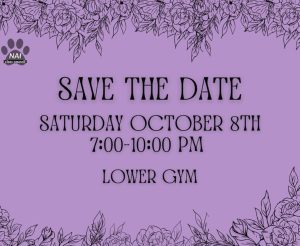The Irony of Free Time
Even when you have it; you don’t.
There’s one thing students never feel they have enough of: time.
November 18, 2022
Picture this. It’s 7:30 on a Wednesday night. You just finished 3 hours worth of mandatory assignments, and tomorrow’s Math test is “going to be a breeze”. So… what now? Hobbies can be rare nowadays, considering teenagers’ workloads and easy access to Netflix. But if you find yourself with time to spare… lucky you.
In general, students who have after-school jobs consider working as their hobby. Sophomore Abby Dietrick says she enjoys her job at Bruster’s, an ice cream parlor where many North Allegheny students are employed. An even better perk, she says, is making money while still having fun. Most working teenagers don’t have problems finding ways to spend their time, but real problems occur when students want to find a creative outlet to relieve daily stress.
After school, work, and a combination of the two–schoolwork–many students just can’t find it in themselves to get productive. Sophomores Aubrey Wells and Caroline Remensky, two student-athletes, say that the best use of their free time is nap time. Both girls mention that they don’t have the energy to do anything after school, let alone homework.
While taking naps isn’t generally harmful, constant tiredness may be an ode to the overachieving culture of North Allegheny’s athletics. Wells states, “I hate having practice every day; it’s tiring.” Constant, intense training can lead to mental and physical fatigue, and some people just need a break. The motivation to do work falls dramatically when students are tired, and even more when they aren’t even passionate about what they’re doing in the first place.
Remensky mentions that she does most of her homework and studying during lunch and study hall because she never has the will to do it at its intended location–home. “Study hall is a godsend,” she says, as she finishes up the final touches on a World Cultures paper.
It’s not just athletics that stand in the way of free time. The school’s band, orchestra, and chorus programs are stuffed full of overworked vocal cords and repetitive music reading. Sophomore Norah Kennedy, a member of the North Allegheny Marching Band, has a lot to say about the time-consuming nature of the program.
Kennedy says, “Coming from someone who’s been in the auxiliary and the band, it takes up so much free time. It’s Tuesdays and Thursdays after school, not including practicing on my own and stuff like parades and football games. And it always goes so late, too.”
Kennedy, along with many other students involved in school programs, finds it pretty difficult to keep up with the workload while staying committed to what she loves. So, why doesn’t she just quit? Schools around the world continue to preach about the importance of ‘taking a break’, but they refuse to allow students to actually take one.
One of various excuses educators make for the surplus of schoolwork is that they’re ‘preparing students for college.’ What they don’t see is that students are already preparing themselves for college. Achieving good grades, volunteering, and of course, extracurriculars, are all necessary activities students do in order to stand out to schools.
For athletes and artists alike, the constant drilling of school-life makes it difficult to enjoy the time they spend doing what their elementary school selves would be proud of. The things they used to love turn to the things they dread. But of course, taking a day off to regroup is frowned upon, and can even lose you that starting spot, or that first chair.
The next time you’re expected to write an English essay about your hobbies, think about the irony of it all, and then continue to write the paper. At the end of the day, teachers will continue to hand out homework, and students will continue to do it.
Everyone wants a grade their parents will be proud of, so as Sophomore Jackson Beemer says,












